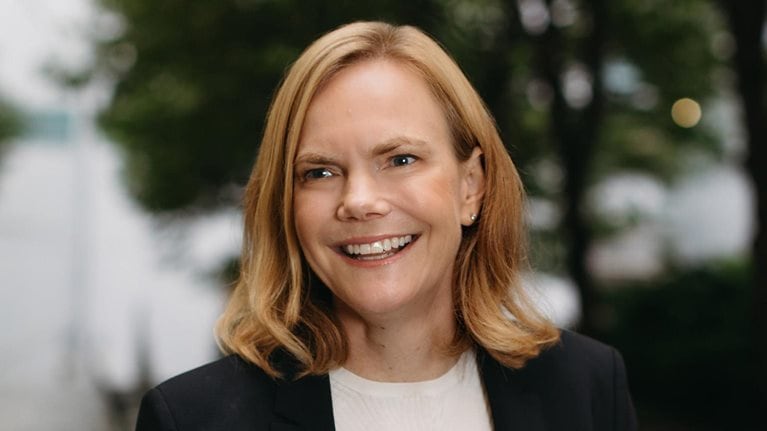Dipak Golechha has run business units and entire companies, but finance keeps calling him back. Now, as chief financial officer of Palo Alto Networks, a leading cybersecurity company, he has a frontline view of how technological advances are transforming the CFO’s role. In this episode of the Inside the Strategy Room podcast, he talks with McKinsey’s own CFO Eric Kutcher about the role’s dual mandate, the value of promoting from within, and why agility is critical for operating amid “VUCA.” This is an edited transcript of their conversation. For more discussions on the strategy issues that matter, follow the series on your preferred podcast platform.
Eric Kutcher: Can you tell us about your background and how you came to be the CFO of Palo Alto Networks?
Dipak Golechha: The genetics are from India; the accent is not. I grew up and went to university in the UK. I began my career at Procter & Gamble, expecting to be there for a year or two, then join my father’s business. I ended up having a 19-year career at Procter & Gamble, mostly in finance but also in operating roles across many product categories and regions, including Latin America, North America, Europe, and global. I affectionately called the company Pack & Go, because that’s what I had to do every couple of years. After I left Procter & Gamble, I was a CFO at two companies in the consumer industry. After that, I was CEO of an early childhood education company before joining Palo Alto Networks.
Eric Kutcher: The consumer space is quite different from education or cybersecurity. How did you manage those transitions?
Dipak Golechha: It’s always fascinating when you change industries because you can ask first-principle questions that haven’t been asked for a long time. You look at industry norms from a different angle and can ask, “Why do we do things this way?” That often unlocks great value.
Eric Kutcher: You bring a relatively rare view to the CFO role because you also served in a series of operating roles and as a CEO. What drew you back into finance?
Dipak Golechha: My philosophy in life is to try to bring joy to your role rather than looking for a role that brings you joy. What I have always loved about finance is its dual mandate: you are there to support the business while also playing a stewardship role for the overall enterprise. Finance is the only function that can see everything, and its number-one priority is maximizing total returns for shareholders. I also think the role is ever-changing. Just in the past 12 to 18 months, CFOs have had to pivot because the cost of money quickly increased from near zero to closer to historical rates. Only the CFO and the finance organization can understand the implications of such a change end to end. Many people are calling this “the revenge of the CFO.” I call it a return to sense and sensibility. In a fast-changing world, you have to constantly reallocate resources to the highest ROI, and the CFO is in the middle of that, which makes it exciting.
Eric Kutcher: I used to play baseball as a catcher and because you are the only one facing the field, you have a unique perspective. The way you describe the CFO role sounds similar: you have a view that no one else has, and the role has strategic elements of enablement or acceleration of the business while also entailing stewardship of the business. I think it also requires being able to peek around corners and always asking, “What could go wrong?” Would you agree?
Dipak Golechha: Right. As a CFO, you will be asked regularly why you had not seen something coming. The best way to peek around corners is to build a network. It could be your CFO peers or other functional leaders. Even if what you see around those corners never comes, it stimulates you intellectually and makes you smarter on topics you might otherwise not think about much.
Eric Kutcher: You mentioned the cost of capital returning to historical norms. How does that change the way you approach decisions from how you might have done it when money was, for all intents and purposes, free?
Dipak Golechha: When money was free, the tendency was to chase growth at all costs. The market helped to propagate that mindset. Many companies were growing even though they couldn’t make money, and they were getting funded with tons of capital. That is never sustainable; history has shown us that. At Palo Alto Networks, we always had total shareholder returns as our North Star, our anchor point. Will this initiative work over a three-year horizon? Will it deliver good ROI? Will it grow our top line or our margin? Will it improve our cash flow and capital structure? If it doesn’t, it has no utility. We use that North Star as a way to raise the bar, and if you consistently raise the bar, that brings everybody along.
Eric Kutcher: Today, acquisitions where returns are six or seven years out may no longer cross the hurdle. And decisions about organic investments may change when you are discounting cash flows at the current cost of capital versus what it was two years ago. Suddenly, you have to figure out how to compete in a world of very different choices.
Dipak Golechha: That’s right. It also focuses everyone back on cash. That should be the first thing everybody learns—that’s how you typically would approach your personal budgeting—but we took a 15-year hiatus from that mindset.
Eric Kutcher: How have you seen the finance function evolve over the course of your career?
Dipak Golechha: The function has a much broader mandate now than it had before. There was a time when finance and accounting were almost synonymous. I rose through the FP&A [financial planning and analysis] track at Procter & Gamble, but in many companies, FP&A was a luxury. In time, you started to see complex specialist areas such as tax and treasury. More recently, the focus has expanded to stakeholders beyond shareholders, and nonfinancial metrics such as ESG are very important to those stakeholders. The CFO has become the pivot point for understanding what stakeholders are looking for and how to deliver it. You need a seat at the table to be the voice of objectivity. In many companies, every function with objectivity at its center now rolls up into finance.
Eric Kutcher: One change CFOs face is the impact of artificial intelligence in different forms. What role do you see AI playing in the finance function?
Dipak Golechha: It’s important to be clear on what we mean by AI. Some forms of AI, such as machine learning, have been around for years. I call that “precision AI.” Essentially, it’s a sophisticated form of automation, and everybody should be using it. Generative AI is different. It’s a great starting point if you want to be 90 percent right. In finance, we typically steer toward precision. At Palo Alto Networks, we are playing with gen AI and developing potential use cases for doing our work more efficiently, but I haven’t seen many examples of generative AI transforming finance tasks that require precision and accuracy.
Subscribe to the Inside the Strategy Room podcast
Eric Kutcher: At McKinsey, we are finding some opportunities to merge those two AI categories. Our FP&A function has introduced a generative AI tool that identifies when something looks off from a planning or control perspective. It’s able to look at data differently, which is the precision component, but making the insights easy to understand requires a bit of the generative side. Another opportunity I see is in synthesizing analyst views. That’s an area where 90 percent accuracy is fine.
Dipak Golechha: I agree with you. Although finance people will never be comfortable with an end product that is 90 percent accurate, gen AI is a great productivity tool. We’ve found, for example, that generative AI can help us look at a process and ask, “Why do we do it that way, and can we revamp it?” In most cases, we are finding that our processes are five to ten years out of date. To give you an example, we’ve used gen AI to revamp our travel and expenses process. We asked ourselves, using generative AI as a foil, “Why do managers have to approve everybody’s expense reports? Why do our policies have certain limits? Why do we allow people to use their personal credit cards for expenses?” We found that we could significantly reduce the workflow.
Eric Kutcher: Given all the changes in the function and the business environment, what skills and experience are you looking for in your employees and how are you developing those capabilities?
Dipak Golechha: If you take the idea that people are your greatest asset to its logical conclusion, you realize that your strong performers are worth twice or three times what your medium or poorer performers are worth. If you don’t focus on developing your talent, you will never be able to execute at near-peak potential. Procter & Gamble is one of the few companies to promote from within. Everybody has to work their way up the ladder. At Palo Alto, we do something similar. We have created a talent journey map to develop our employees.
It starts before day one, with the interview process and making sure we hire the best. Then, how do we ensure proper onboarding? How do we provide initial training? How do we approach assignment planning? How do we deliver continuous training? How do we promote internal mobility? We have mandatory development hours for all finance employees each quarter, with accountability by their managers. When you promote people from within, you see them go from strength to strength.
Eric Kutcher: How are you approaching decisions today given the recent external shocks and the current state of the economy?
Dipak Golechha: VUCA [volatility, uncertainty, complexity, and ambiguity] is the new normal. The key is to control the controllables. There are many things that you can’t do or predict. There are others that you do know. Never compromise on anything related to integrity. Always invest in your products and your people. You have to get comfortable making principle-based decisions.
From a purely financial point of view, you need to get used to scenario planning on the fly, in your head, so that with every major decision you make, you say to yourself, “What needs to be true for this to be a bad decision?” Then quickly do the math: What’s the likelihood of that eventuality? If it’s small, you make the decision. If the probability is significant, you do more analysis.
The need for agility is another major change. There was a time when we would say, “Let’s build a model, train it, take two weeks to figure out how to do the math, then discuss it.” That’s gone. Now, it’s, “In 24 hours, maximum, we need to have the math done to be able to make a decision.” That requires your organization to be agile.
Eric Kutcher: What I think you are saying is that we have to be courageous enough to make decisions, but we have to be flexible enough to revisit those decisions as new information comes in. There are very few decisions we can’t unmake.
Dipak Golechha: I agree. You can’t not make decisions. Procrastination is not a good approach. But if you are proven wrong, you must have the humility to say, “I was wrong. Let’s do what’s right based on today’s data.”
Eric Kutcher: Your company focuses on cybersecurity, which has become an important consideration for CFOs. How should they think about those risks?
Dipak Golechha: Everything we do is becoming more digital. Just think about how you bank, track your health, or drive your car. From a hacker’s point of view, that makes the attack surface area larger and richer. That same phenomenon is true for companies. Technology has become the foundation of how every company operates, innovates, and differentiates. The risks include not only financial costs but reputation and impact on shareholder value. Consider that in a single month this fall, five or six public companies filed 8-Ks, reporting cybersecurity breaches that would have a material impact on their financials. CFOs, in their stewardship role, have oversight over cybersecurity from an audit and ERM [enterprise risk management] perspective, so I would recommend that if you are not an expert on cybersecurity, get trained.
I would focus on three simple principles. First, what matters most to your company? What are your crown jewels in terms of data, and are they secured differently than the rest of your data? Our company’s crown jewel is our intellectual property. I don’t have access to our IP, nor should I. Secondly, do you have a lot of complexity? Complexity usually expands the surface area that a hacker can attack. Lastly, make sure that cyber is part of your ERM or controls framework and that you are testing penetration risks. We have all become accustomed to business continuity planning, so why wouldn’t we do that with cyberattack planning?
Eric Kutcher: You suggest we all get trained on cyber. How should CFOs go about that?
Dipak Golechha: Start by asking questions. Have you had a one-on-one with your chief information security officer and asked them to walk you through your company’s cybersecurity posture and how you segregate your data? I have used home security as a way to think through potential vulnerabilities. Do I feel good about the lock I have on the door and the sensors I have on my windows? If you understand how your home security is stitched together, you can use that as an analogy for thinking about corporate cybersecurity.
Eric Kutcher: What advice would you give a new CFO today?
Dipak Golechha: I would divide the first 90 days into three distinct phases. The first is making sure specific areas that could get you fired are under control. Do you have enough cash for your operation, for the next 18 to 24 months? Do you have any accounting-entry concerns or gaps that could lead to a material restatement of financials? Do you have recurring control issues that are not being followed through? Fundamentally, those are the three reasons that a CFO gets fired.
Next, I would try to understand what your predecessor focused on and was good at, then pursue a couple of initiatives in a different direction—partly to show your stakeholders and the board that you have confidence in your own priorities and partly because it’s more difficult to add significant value to something your predecessor spent a lot of time on. The last phase is to carefully assess every one of your direct reports and make the obvious changes quickly. When you ask long-time CFOs about the one thing that they wish they had done earlier, the majority talk either about eliminating weak performers faster or making big decisions sooner.
Once you’ve gotten through your first 90 days, focus on something logical and tangible. I happened to take TSR as a framework but something else might work better for others. It’s a great way to change the priorities, and you can use it to frame a different approach that carries the organization along.


